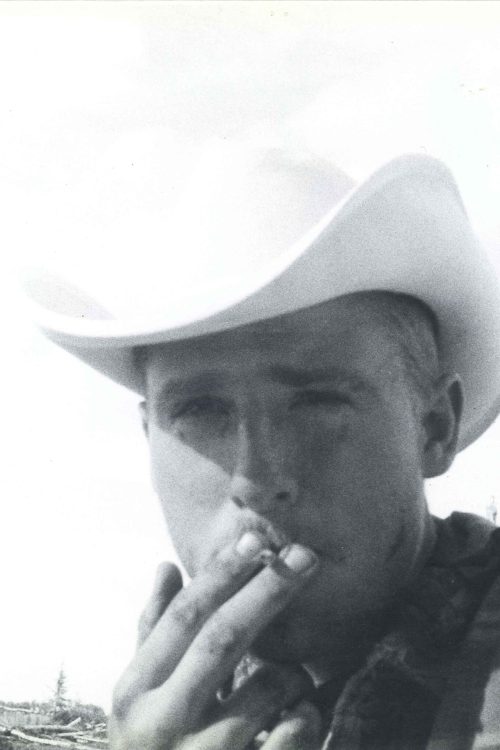What’s Alex Pugsley Reading?
By Alex Pugsley
A BOOK I READ recently was The Mystery of the Emeralds, Trixie Belden Mystery #14, credited to Kathryn Kenny. Such pulpy offerings—series for young readers like The Bobbsey Twins, The Hardy Boys, Nancy Drew, Encyclopedia Brown, Enid Blyton’s Famous Five and Secret Seven, Alfred Hitchcock and the Three Investigators, Cherry Ames Student Nurse—were everywhere when I was a kid.
You’d see them haphazard in a bookshelf, crammed between Auto Trader and National Geographic magazines, or at the bottom of the Lost & Found bin at school, sharing the floor with a nylon tuque, a green plastic army man, and a peanut-butter-and-grape-jelly sandwich squished into a baggie.
I had not read Trixie Belden before, although I recall my cousins reading the series, and so, last November, when I found myself on Agricola Street in Halifax, recently evicted from my Toronto apartment, feeling sorry for myself and essentially all alone beweeping my outcast state, I decided, after spying a warped paperback copy of The Mystery of the Emeralds in a Little Free Library hutch, to solemnly pick out, take home, and read this Trixie Belden adventure.
“Leave it to Trixie Belden,” writes an observer on Goodreads, “to discover a mystery while cleaning the attic at Crabapple Farm!” True. Trixie does that. It’s a century-old mystery that leads her to Virginia and the secrets of an antebellum mansion called Rosewood Hall.
Was I intrigued? For many years, I wrote kids TV and I was interested to see how the ghost writer—for Kathryn Kenny was a pseudonym created by Western Publishing House in 1961, three years after the original writer, Julie Campbell, wrote her last Trixie book—handled standard issue story questions like characterization, pacing, and story structure. Pretty competently, I decided, and I’m guessing that he or she would have had a managing editor overseeing the twists and turns and overall feel of this installment.
Were there any ideas in the book that made me reflect on my own values? A few. A book like this constructs its own universe with its own rules and laws and intents and purposes that all follow from the presumptions and prejudices of the society from which it is itself created. So, yes, this is a very white world of middleclass teens who shell peas on the back porch, fuss with jalopies, and use exclamations like “Gleeps!” And yet, somewhat progressively, it is Trixie—not the prettiest girl, not the coolest girl—who is the hero. She is the driver of the dramatic action because she does not accept received truths, because she chooses to think for herself, and because she wishes to see things through to their proper conclusion.
These are values we can all learn from and this spring, as I’ve tried to regroup and recover for whatever adventure is next, it is Trixie’s stalwart example that I have kept in mind, in place, and
in focus.

As a screenwriter and story editor, Alex Pugsley has worked on over 185 produced episodes of television, writing for performers such as Lauren Ash, Scott Thompson, Jenn Whalen, Ennis Esmer, Mark McKinney, Dan Aykroyd, and Michael Cera, and for such series as Hudson & Rex, The Eleventh Hour, Life with Derek, Baxter, Heartland, G-Spot, I Was a Sixth Grade Alien, and The Gavin Crawford Show. His feature film Dirty Singles won for him the Irving Avrich Emerging Filmmaker Award at TIFF. Following the publication of his debut novel, Aubrey McKee, he was named one of CBC’s 2020 Writers to Watch. His first story collection, Shimmer, was recently nominated for the 2023 ReLit Award for Short Fiction. His next book, The Education of Aubrey McKee, has just been published by Biblioasis. The second in a multi-part series, the novel details Aubrey’s arrival in Toronto as a young adult.
Photo Courtesy of iStock Getty Images

